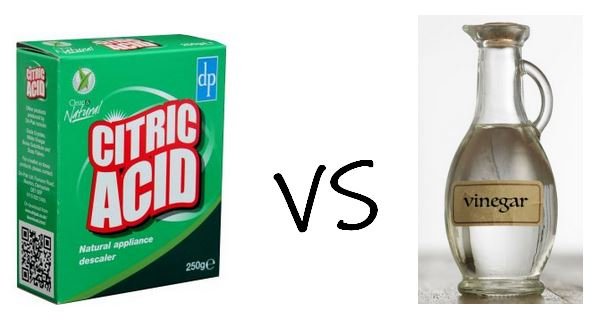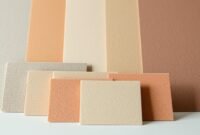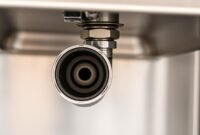Are you fed up with harsh chemical cleaners? They leave toxic residues and bad smells. Traditional cleaners are pricey, harm the environment, and can be bad for your health. It’s hard to keep your home clean without risking your safety.
But what if you could use something from your kitchen to clean? Citric acid is a natural cleaner that changes how we clean our homes. It’s safe and eco-friendly, making your home shine without harming you or the planet.
In this guide, I’ll share all you need to know about using citric acid for cleaning. You’re about to learn a new way to clean that’s good for your home, health, and the environment.
Understanding Citric Acid and Its Cleaning Properties
Citric acid is a strong natural cleaner that changes how we clean our homes. It comes from citrus fruits and is a green choice instead of harsh chemicals. I’ve seen how well it works on different cleaning tasks without harming the environment.
What Makes Citric Acid an Effective Cleaner
Citric acid solutions are special because of their chemical makeup. This acid is great at removing mineral deposits and tough stains. Here are some reasons why it’s a top choice for cleaning:
- Powerful mineral-binding capabilities
- Natural descaling properties
- Mild yet effective cleaning action
- Safe for most household surfaces
Chemical Properties and Safety Considerations
Knowing how citric acid works is key when making cleaning solutions. It binds to minerals, removing hard water stains and lime. Always use it in the right amounts for best results and safety.
Natural vs. Synthetic Citric Acid
Not all citric acid is the same. Natural citric acid from citrus fruits is better for the planet than synthetic versions. It’s a greener cleaning option with fewer risks.
Even though citric acid isn’t a registered disinfectant, it has mild antibacterial properties. It’s a great pick for daily cleaning because it’s safe and effective.
Read also: How to Clean a Garbage Disposal that Smells
Benefits of Using Citric Acid for Household Cleaning
I’m really into green cleaning, and citric acid is a big win for eco-friendly cleaning. It’s a natural cleaner that beats out old chemical cleaners.
Citric acid is great for cleaning your home without harsh chemicals. It’s safe for most surfaces and works really well. This makes it a top choice for home cleaning.
- Environmentally friendly alternative to toxic cleaning agents
- Breaks down mineral deposits and tough stains effectively
- Neutralizes odors without artificial fragrances
- Cost-effective compared to commercial cleaning products
Citric acid is special because it cleans gently but effectively. It doesn’t harm your home’s materials like synthetic cleaners do. It’s perfect for kitchen counters, bathroom fixtures, and even delicate areas.
Choosing citric acid means you’re going for a safer, greener way to clean. You’ll cut down on chemicals, help the planet, and get your home spotless every time.

How to Clean with Citric Acid: Basic Solution Preparation
Making a cleaning solution with citric acid is easy. I’ll show you how to make a natural cleaner for your home. It can handle many cleaning tasks.
To make a citric acid solution, you need a few simple steps and basic tools. Knowing the right mix and using the right tools is key.
Required Tools and Materials
- Citric acid powder
- Spray bottle
- Measuring spoons
- Hot water
- Mixing container
Proper Mixing Ratios
For your cleaning solution, aim for 5-7% citric acid. This mix is strong enough to clean well but gentle on surfaces.
| Concentration | Citric Acid | Water | Best Use |
|---|---|---|---|
| Light Cleaning | 2-3 tablespoons | 1 cup | General surface cleaning |
| Medium Strength | 4-5 tablespoons | 1 cup | Descaling, mineral deposits |
| Heavy Duty | 6-7 tablespoons | 1 cup | Tough stains, hard water buildup |
Mixing Instructions
- Heat water until hot – this helps dissolve citric acid crystals faster
- Measure citric acid precisely using measuring spoons
- Slowly add citric acid to hot water
- Stir until completely dissolved
- Transfer to a clean spray bottle
Pro tip: Always label your spray bottle with the date and concentration. This helps you keep track of your solution’s freshness and strength.
Bathroom Cleaning Applications

Citric acid is a natural and powerful cleaner for bathrooms. It tackles tough water stains and mineral deposits. With it, grimy surfaces become sparkling clean, all without harsh chemicals.
In bathrooms, citric acid is a game-changer. It removes mineral buildup and water stains, making them look unsightly. I’ve found several cleaning techniques that make bathroom upkeep easy.
- Eliminates soap scum on shower doors
- Removes hard water stains from faucets
- Cleans ceramic tiles and porcelain surfaces
- Descales chrome fixtures
There are practical ways to clean different bathroom surfaces with ease. I’ll share my top methods for using citric acid to shine surfaces and remove tough deposits.
| Surface | Cleaning Method | Concentration |
|---|---|---|
| Shower Heads | Soaking Solution | 3 tablespoons per cup of water |
| Toilet Bowl | Direct Application | 1/4 cup citric acid |
| Tiles | Spray Solution | 2 tablespoons per spray bottle |
Always test the solution on a small area first. This ensures it works well with your bathroom surfaces. With these methods, you’ll become a pro at using citric acid for bathroom cleaning. Say goodbye to water stains and mineral deposits.
Kitchen Surface Cleaning and Descaling
Citric acid is a powerful natural cleaner that changes how we clean kitchens. It’s great for getting rid of tough grime and hard water stains. Its versatility makes it a key tool for keeping kitchen surfaces clean.
Descaling with citric acid is impressive. It removes mineral buildup and water spots well. Kitchen surfaces often get stubborn residues that hard cleaners can’t handle.
Countertop and Sink Cleaning Techniques
For cleaning hard water stains, I use a simple citric acid solution. Here’s how to make your kitchen surfaces shine:
- Mix 2 tablespoons of citric acid with 1 cup of hot water
- Apply the solution to stainless steel sinks and granite countertops
- Let sit for 5-10 minutes
- Wipe clean with a soft cloth
Appliance Maintenance Secrets
Small kitchen appliances also benefit from citric acid cleaning. Coffee makers, electric kettles, and other water-using devices can be descaled and refreshed easily.
- Disassemble removable parts of the appliance
- Create a descaling solution with citric acid
- Run the solution through the appliance
- Rinse thoroughly with clean water
Stubborn Stain Removal Strategies
For tough stains, I use a concentrated citric acid paste. Mix citric acid powder with water to make a thick paste. Scrub tough spots on ceramic, metal, or glass surfaces. The acid breaks down mineral deposits and grease easily.
Descaling Appliances with Citric Acid
Limescale can harm your kitchen appliances. I found that using citric acid to descale is a big help. It keeps your coffee makers and other machines working well and lasts longer.
Mineral buildup in coffee machines can change how they taste and work. A citric acid solution can quickly and safely remove these deposits. It’s easy to do and doesn’t take much time.
- Ideal for coffee makers and electric kettles
- Removes mineral deposits effectively
- Safe, natural cleaning method
- Cost-effective appliance maintenance
To descale coffee makers, I mix 2-3 tablespoons of citric acid with water. Then, I run this solution through the machine’s cycle. After, I rinse with two cycles of clean water. This whole process takes about 30 minutes and boosts your machine’s performance.
Other appliances need different methods. For electric kettles, I fill it halfway with water, add citric acid, boil, and let it sit for 15 minutes. Then, I rinse it. Washing machines and dishwashers also benefit from similar descaling methods, keeping them in great shape.
Read also: Washing Machine Making Noise When Agitating
Regular descaling with citric acid makes your appliances work better and saves money. By spending a bit of time and effort, your coffee machines and kitchen appliances will last for many years.
Removing Hard Water Stains and Mineral Deposits
Hard water stains can ruin the look of your surfaces. Citric acid is a strong fighter against these stains. It’s a natural cleaner that works better than many other products.
Citric acid breaks down mineral deposits in a special way. It binds with calcium and magnesium ions. This dissolves the hard buildup on surfaces.
Tackling Limescale Buildup
Limescale is a big problem for many homeowners. I use a citric acid solution to get rid of it. Here’s how to remove limescale:
- Mix 2-3 tablespoons of citric acid with 1 cup of hot water
- Apply directly to affected surfaces
- Let sit for 10-15 minutes
- Scrub gently with a soft cloth
- Rinse thoroughly with clean water
Treatment for Persistent Water Spots
Water stains on glass, chrome, and ceramic are hard to remove. Citric acid is a green and effective solution. For tough stains, make the solution stronger by adding more citric acid.
Read also: How to Keep Bugs Out of Pool?
Pro tip: Always test the solution on a small area first. This ensures it won’t damage the surface. Different materials react differently to citric acid.
Surfaces to Avoid When Using Citric Acid
Not all surfaces are safe when using citric acid solutions. Some materials can get damaged if you’re not careful. I’ve learned that some surfaces need extra care to avoid harm.

Natural stone surfaces are very sensitive to citric acid. Marble, granite, and other stones can get damaged easily. Their chemical makeup makes them react badly to acidic cleaners.
- Marble surfaces
- Granite countertops
- Limestone
- Travertine
Metals also face challenges with citric acid. Stainless steel and iron can corrode or change color. It’s best to avoid using citric acid on these surfaces to prevent damage.
| Surface Type | Potential Damage | Cleaning Alternative |
|---|---|---|
| Natural Stone | Micro-etching, surface pitting | pH-neutral stone cleaners |
| Stainless Steel | Corrosion, discoloration | Specialized metal cleaners |
| Cast Iron | Surface degradation | Gentle soap and water |
Always test a small area before using citric acid. This simple step can prevent expensive damage to your home. If unsure, check the manufacturer’s guidelines or ask a professional for advice.
Environmental Benefits of Citric Acid Cleaning
Citric acid is a top choice for green cleaning. It offers amazing benefits for our planet. Unlike regular cleaners, it’s much better for the environment.
Using citric acid in your home has many advantages. It’s good for the planet and for you:
- Completely biodegradable and non-toxic
- Reduces chemical pollution in water systems
- Minimizes plastic waste from commercial cleaning products
- Derived from natural sources like citrus fruits
Producing citric acid is also better for the planet. It’s made from natural processes, not harsh chemicals. This means less harm to our environment.
I love that citric acid breaks down quickly in nature. It doesn’t harm water systems or animals like other cleaners do. It’s safe and natural.
Choosing citric acid for cleaning is more than just a choice. It’s a way to help our planet. By using it, you’re doing your part to protect the environment.
Tips for Maximum Cleaning Effectiveness
To get the most from your citric acid solutions, you need to know a few tricks. I’ve found some key methods to boost its cleaning power. With the right preparation and use, your cleaning routine will become more efficient and effective.
Best Practices for Application
Temperature is key when making your cleaning solution. Warm or hot water helps dissolve citric acid crystals faster. This makes your cleaning solution stronger. Here are some tips for the best results:
- Use a clean spray bottle for even distribution
- Test the citric acid cleaning solution on a small area first
- Let the solution sit for 5-10 minutes before wiping
- Rinse thoroughly with clean water after cleaning
Storage and Shelf Life Management
Storing your citric acid solutions right is important. Keep them in a cool, dark place, away from sunlight. Most homemade solutions stay good for 1-2 weeks if stored properly.
Pro tip: Always label your spray bottle with the date you made it. If you see any color, smell, or consistency changes, it’s time to make a new batch. This keeps your solution at its best.
- Use airtight containers
- Keep away from heat and direct light
- Check solution quality before each use
By following these tips, your citric acid solutions will stay strong. They’ll be ready to tackle any cleaning job.
Common Mistakes to Avoid
Using citric acid for cleaning can lead to mistakes that harm your efforts and surfaces. Knowing these mistakes helps you clean better and safer.
- Never mix citric acid solutions with bleach or ammonia-based cleaners
- Avoid using undiluted citric acid directly on sensitive surfaces
- Do not assume citric acid is a complete disinfectant
- Prevent overuse on delicate materials
One big mistake is using the wrong concentration of citric acid. A too-strong mix can damage surfaces, while a too-weak one won’t clean well. Always use the right amount as recommended for the best results.
| Surface Type | Citric Acid Cleaning Risk | Recommended Approach |
|---|---|---|
| Marble Countertops | High Risk of Etching | Dilute Solution, Minimal Contact |
| Stainless Steel | Moderate Risk | Gentle Application, Rinse Thoroughly |
| Rubber Seals | High Degradation Risk | Avoid Direct Contact |
Don’t use citric acid in washing machines or dishwashers. These machines have parts that can break down from acidic cleaners. Use the cleaning methods suggested by the makers to keep them safe.
Remember, citric acid is a strong cleaner but not for everything. Always test it on a small area first. Also, know what each surface needs when using citric acid.
Conclusion
My journey with citric acid has been a game-changer. It’s a natural cleaner that makes household chores easier. It’s great for those who care about the environment.
Citric acid is easy to use and doesn’t cost much. It’s a versatile cleaner that works well on many surfaces. It’s a better choice than harsh chemicals for your home and the planet.
When using citric acid, safety is key. Wear protective gear and follow the right dilution. Test it on small areas first. This way, your home stays clean and safe.
I suggest trying out citric acid for yourself. It’s not just a cleaner; it’s a choice for a healthier home and planet. Clean in a smarter, more eco-friendly way.


